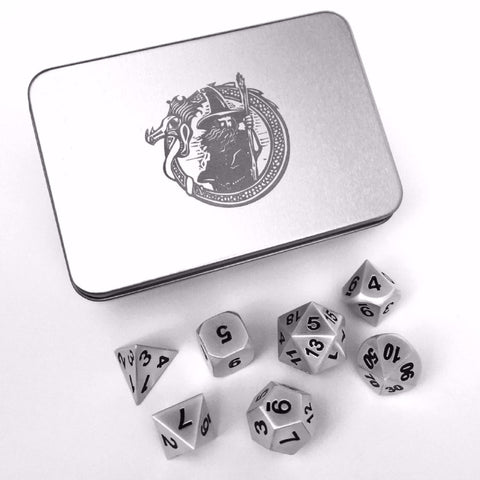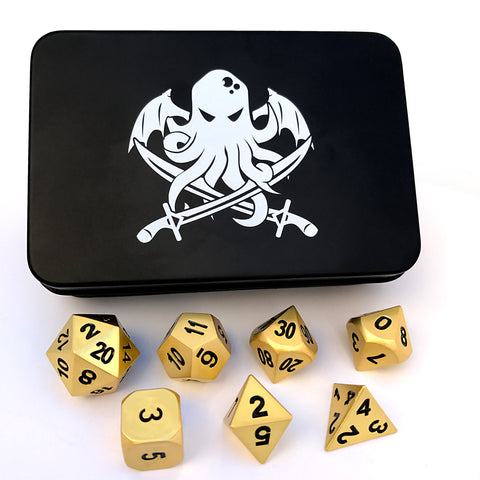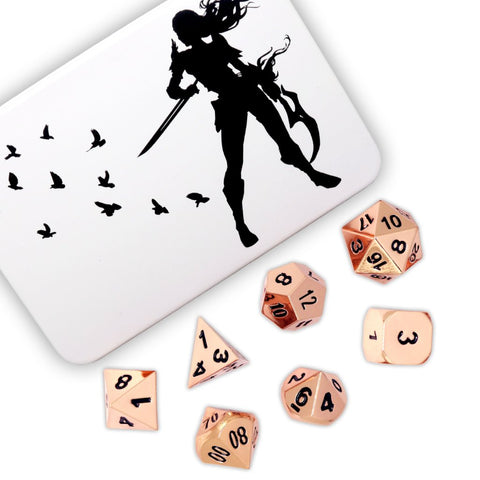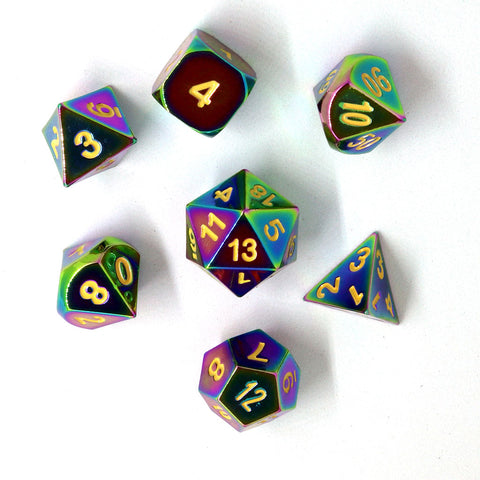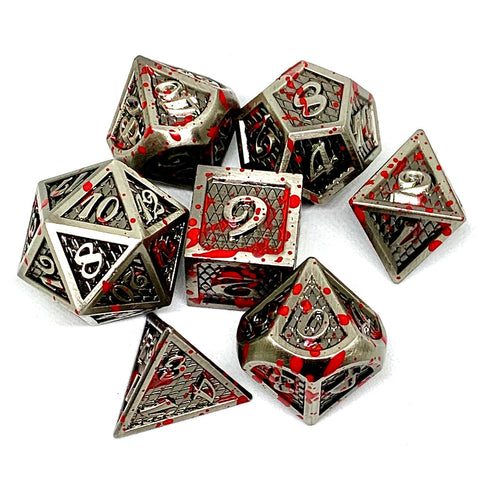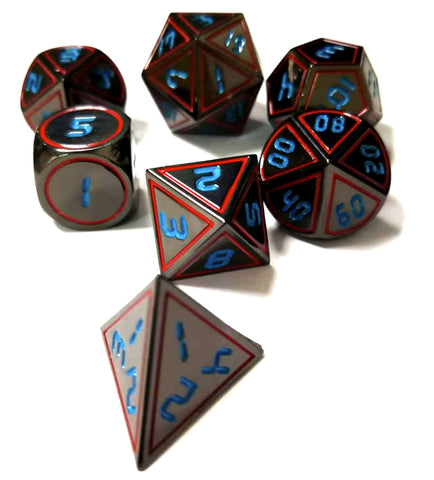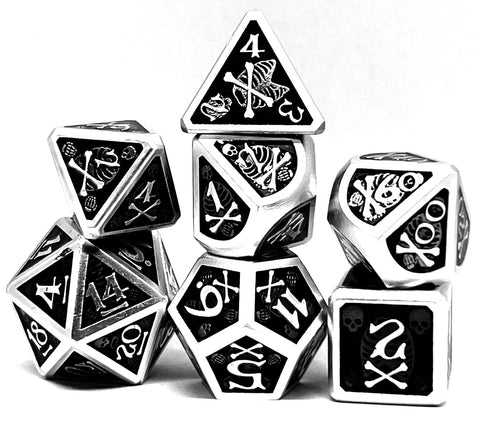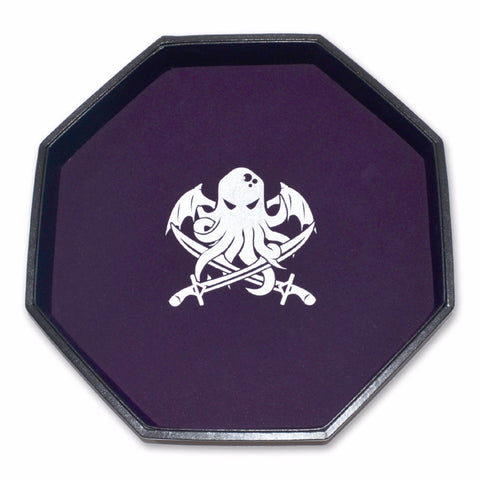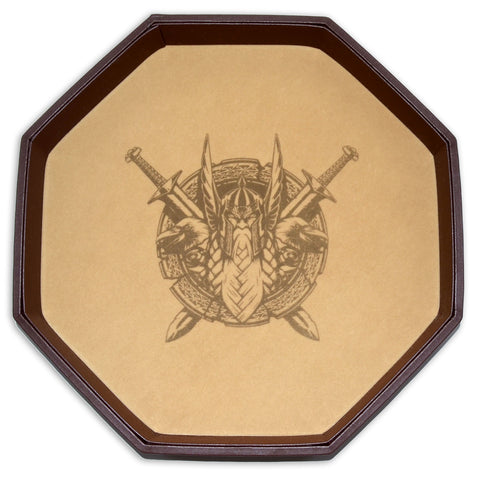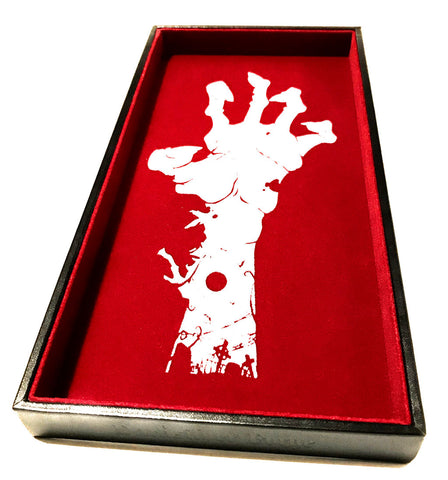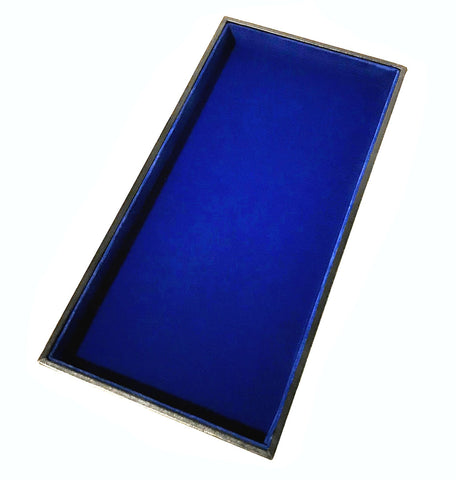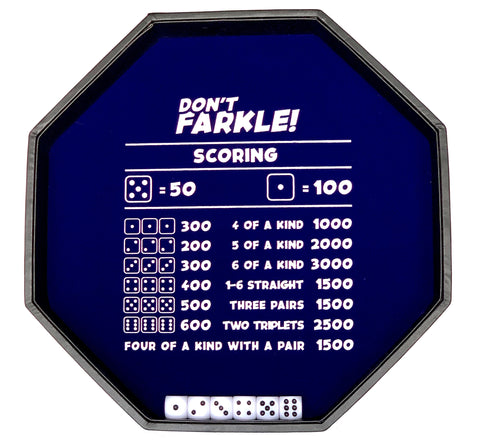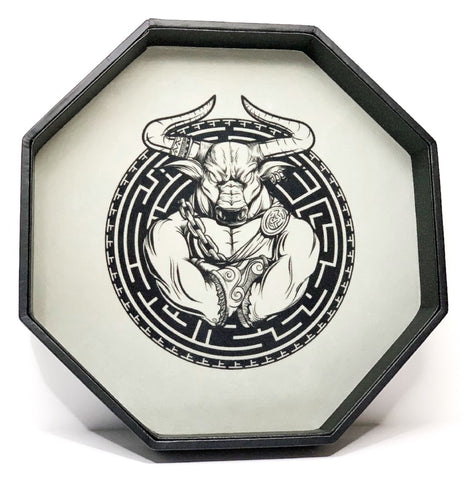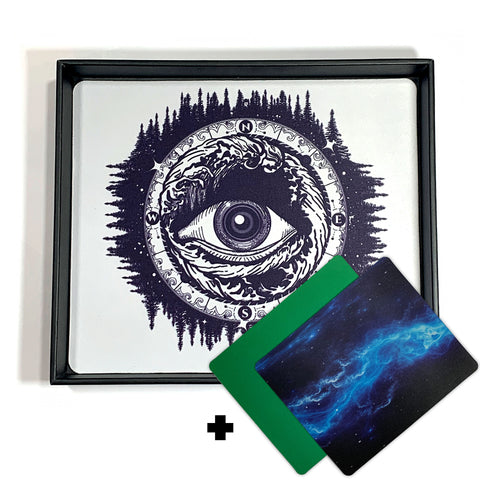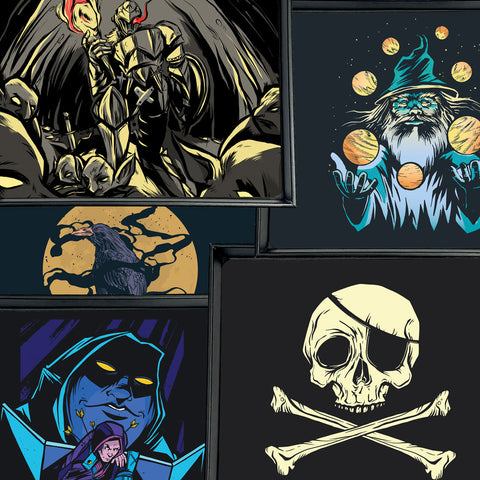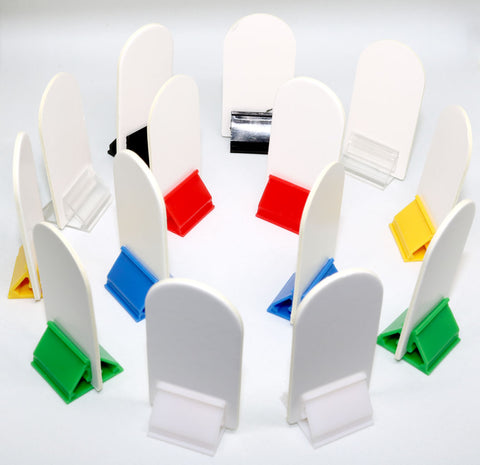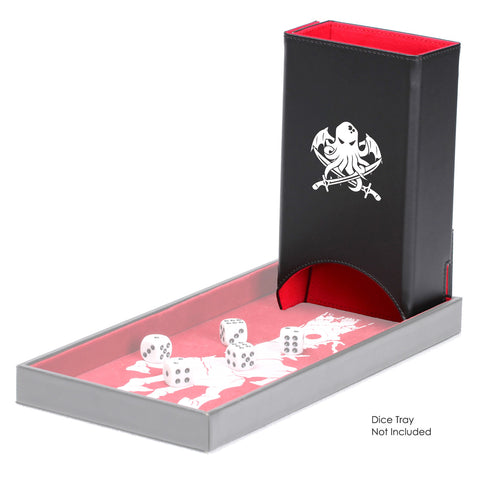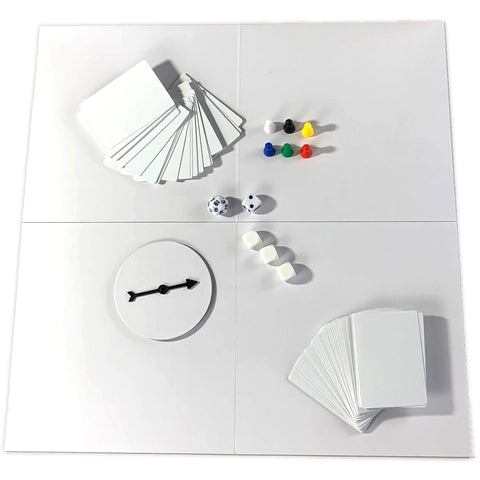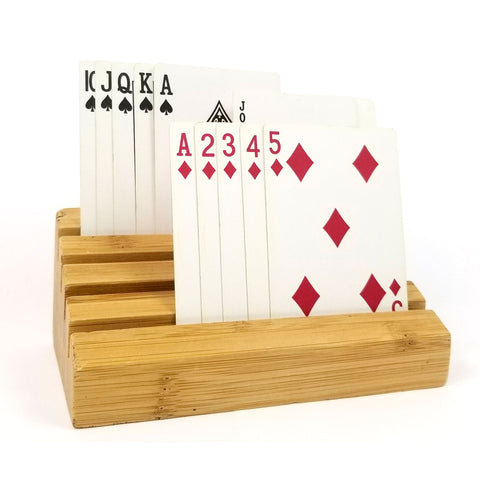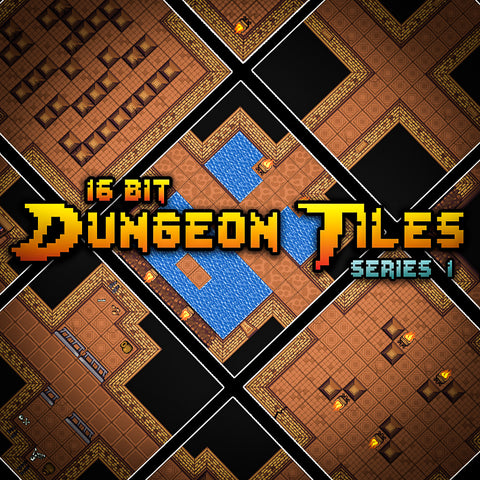How To Get Started Playing Dungeons & Dragons
We've had a lot of people ask us questions like the following:
- How or where do I start playing D&D?
- What do I need to start playing D&D?
- Is there a D&D for Dummies? (There is, but it's kinda old now.)
- What dice do I need for D&D?
- What are the different dice for?
If you also have those questions, then this is the article for you.
What is Dungeons & Dragons anyway?
Some people make it sound more complicated than it is, but essentially it's a group of friends getting together and making up a story together. The rules are there only to keep things in check so that you can have a cohesive storyline.
Rules? What the?!
Suppose your group needs to cross a wide river. You could use what's available to you, either from the land itself or your inventory. Maybe you'll chop down a tree and build a crude bridge, or maybe you'll steal a boat. Maybe you'll even try to swim across.
The rules prevent the players from saying something like, "I'm just gonna jump all the way over the river!" The ability to jump is tied to a specific character skill, and you'd have to roll a very high number to make it across. It might be impossible to jump across. It's important to note, however, that the rules do not prevent the players from attempting to jump across. It's just very unlikely that they will be successful. The DM would just weave that failure into the story: "Grog ran as fast as he could and jumped, but his dwarvish legs didn't take him very far, and he fell headfirst into the muddy river bank."
Some Basic Terms You Should Know
DM = Dungeon Master. This is the narrator of your story. If D&D was a video game, the DM would be playing the part of the computer. He presents the story, sets traps, gives treasure, and plays all the monsters and other characters in the game that aren't controlled by the other players. Also known as a GM, or Game Master, as a more generic term because many tabletop RPGs aren't fantasy themed and don't have dungeons.
PC = Player Character. One of the people (besides the DM) playing D&D.
NPC = Non-Player Character. Any character in the story that isn't controlled by the PCs. It could be an innkeeper or dragon. The DM plays these characters.
5e, 4e, etc. = Corresponds to an edition of the D&D rules. 5e stands for the 5th Edition. Each edition has slightly different rules. We recommend the 5th edition because the rules seem the simplest and most refined. When buying books like the Player's Handbook, Dungeon Master's Guide, and Monster Manual, be sure to get the latest 5th Edition versions.
D20, D12, D8, etc. = A D20 refers to a 20 sided die. A D12 refers to a 12 sided die, and so on. What are the different dice for? Well, the D20 is used quite often for skill and ability checks to see if your character can actually do what you want to do. The higher the roll, the more likely your character will be successful. The other dice have different purposes. For example, you might start with a teeny wooden club that requires you to roll a D4 for damage, meaning you could do anywhere from 1 to 4 damage to an enemy, but then later you may pickup a war axe that does D12 damage. Then you'd do 1-12 damage, depending on your roll.
What do I need to start playing D&D?
It's always easier if you can find a group to ease you into the game. If you don't have any friends that already play, then we suggest inquiring at your local comic or game shop.
If you'd prefer to learn on your own, then we suggest buying the Dungeons & Dragons Starter Set. It contains everything you need, including dice, pre-made character sheets, an abbreviated Player's Guide, and a simple starter campaign.
That's really all you need to get started, but then later you'll want to pickup the official Player's Handbook so you can learn to create your own unique character.
Once you know the basics, put the cheap plastic aside and get yourself some solid metal dice. :)
But... what's it like to actually play?
- You, as a player, must create a character before you can start. You can keep this character for later games. Creating a character with a full backstory can take awhile, so be prepared for that. Let's assume you have a character created already.
- The DM narrates the story and tells the PCs what's going on, introducing some sort of problem or mystery to solve, and usually promising a reward at the end. This is generally known as the "adventure hook." Here are some good ones.
- The PCs work together to figure out what they want to do, just like they might in real life, without taking turns. It's possible that they won't all agree, and the DM has to be prepared for that.
- The PCs might get involved in a battle with a monster. There are more rules that govern that, including who gets to attack first, taking turns, etc. Those rules are outside the scope of this article, but aren't terribly difficult once you've figured out the rest.
- The DM is the main storyteller of the game, and he or she decides when the current adventure has reached its conclusion.
D&D or DnD?
What's the correct abbreviation? The answer is that it's either one. D&D is more accurate, but DnD is easier to type, especially on a mobile device, so you're good either way. Don't worry about it.
What about all those miniatures and grids?
Previous editions of D&D put more emphasis on miniatures. A DM could draw out a map on graph paper, then during the D&D game, you physically move your character's miniature around. Some people still prefer playing this way. Now, there are dry-erase battle mats, dungeon tiles, and terrain like you wouldn't believe. While it's perfectly okay to have all that, none of it is necessary for D&D 5e because the emphasis in 5e is on the "Theatre of the Mind".

